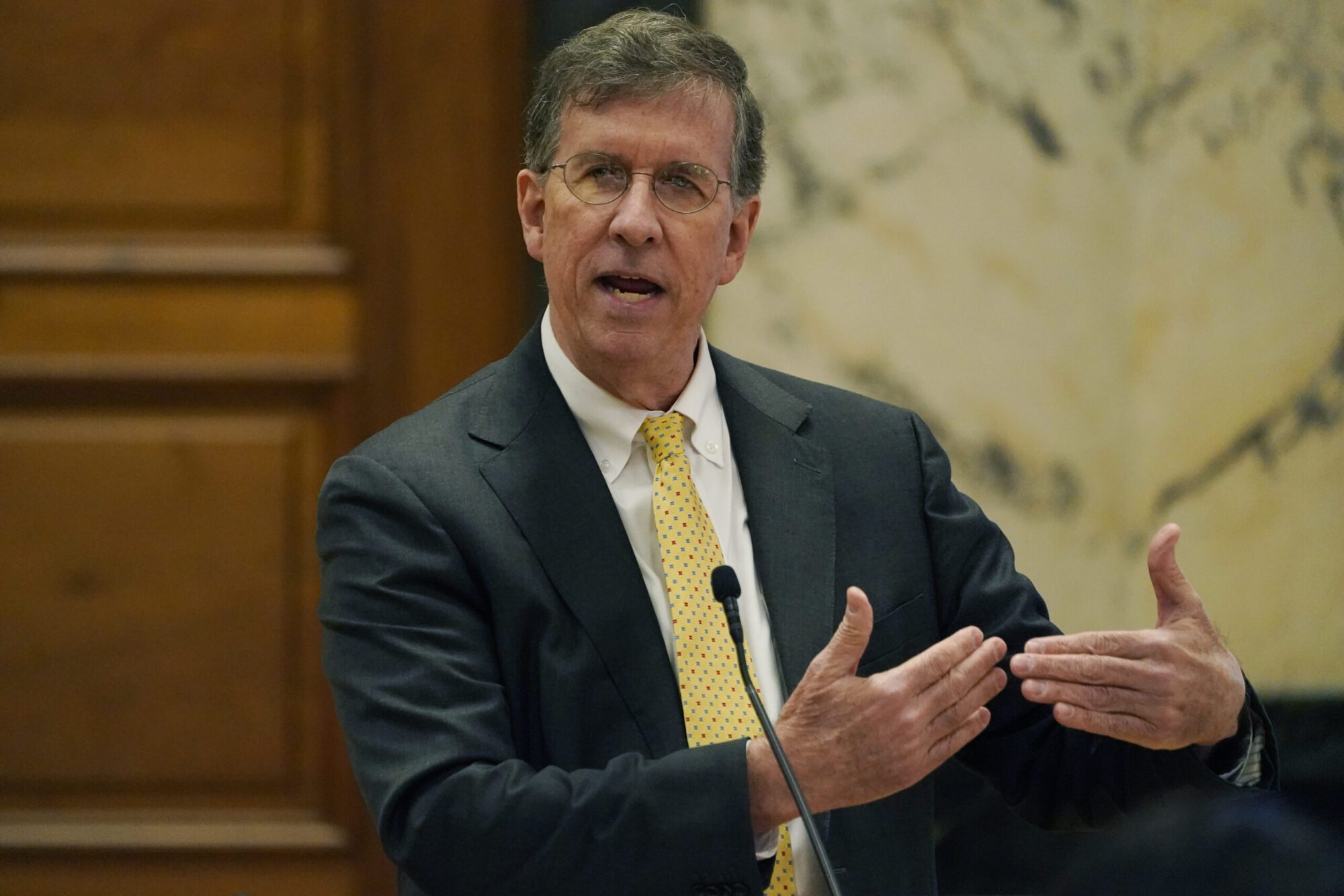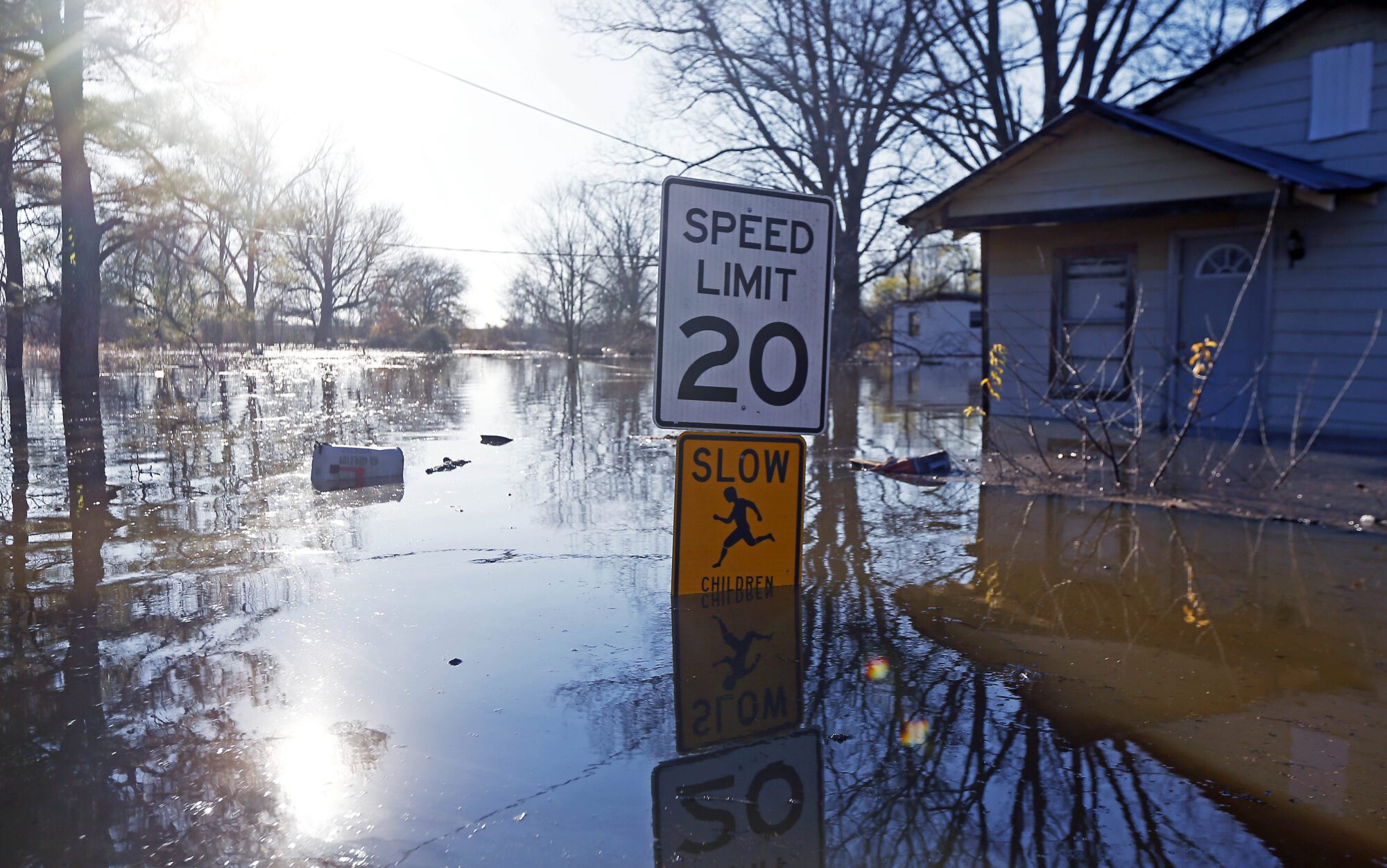
Dr. James M. Tucker, chairman of the Department of Obstetrics and Gynecology at the University of Mississippi Medical Center, addresses members of the Senate Medicaid Committee, Thursday, Dec. 1, 2022, at the Mississippi Capitol in Jackson. (AP Photo/Rogelio V. Solis)
Advocates argued that the report proved that the failure to expand postpartum care was costing lives. But it is hard, after all, to say Medicaid would have saved someone if they were on Medicaid when they died.
According to MS Medicaid Exec. Dir. Drew Snyder, almost all of the women identified in the Mississippi Department of Health’s Maternal Mortality Report as having died more than 60 days after delivery were on some form of Medicaid at the time of death. Twelve of fifteen, to be more precise.
The revelation comes after proponents of postpartum expansion seized on the report, which did not include the coverage status at the time of death, in support of their belief that the legislature should expand from the current 60 days of coverage to a full year.
Regardless of your take on expanding postpartum Medicaid benefits, or Medicaid expansion more generally, facts should matter in these debates. Omitted information leads to poor decisions.
The Maternal Mortality Report examined pregnancy-related deaths over a three-year period from 2017-2019. Its findings drew national attention from outlets ranging from the Washington Post to NBC News.
Advocates argued that the report proved that the failure to expand postpartum care was costing lives. But it is hard, after all, to say Medicaid would have saved someone if they were on Medicaid when they died.
To be certain, Mississippi’s maternal mortality rate is far too high and there is a growing racial disparity in the deaths. The MSDH report reflects that the chief drivers for maternal death in Mississippi are cardiovascular disease and cardiomyopathy. It recommends more healthy eating options, as well as the expansion of postpartum care.
The raw numbers and coverage situation at the time of death add important context to the discussion, though. Forty “pregnancy-related” maternal deaths over the three-year span studied were identified in the Maternal Mortality Report. That’s roughly 13.3 deaths per year. Thirty-three of the forty had Medicaid pregnancy coverage.
Seventeen of the forty died more than sixty days after delivery (5.7 deaths per year). If accurately categorized, the numbers mean 43 percent of all maternal deaths in Mississippi occur after sixty days from delivery. Most studies that have looked at maternal mortality have found far lower percentages. One study reported that 88 percent of maternal deaths occur within the first 42 days. It is unclear if Mississippi is an extreme outlier or if there could be variation in the way that we determine what is “pregnancy-related.”
Fifteen of the seventeen had Medicaid pregnancy coverage. But what was their coverage status at the time of death? The Maternal Mortality Report does not say. This is a glaring omission. If the data in the report is to be used to support the idea that expanding postpartum care might save lives, then whether mothers were on Medicaid or had other health coverage at the time of death is extremely relevant.
We now know the answer. Medicaid Exec. Dir. Drew Snyder said that the Division of Medicaid has determined coverage status at the time of death for these fifteen women. It concluded that twelve of the women were on some form of Medicaid at the time of their death.
“For the fifteen women that died at least 60 days after the end of pregnancy, seven had full Medicaid coverage in the month of death. Five were enrolled in a limited-benefit Medicaid waiver program that covers contraception and other family planning-related services,” said Snyder.
If you are doing the math, this means the number of women that delivered under Medicaid, died more than sixty days after delivery, and did not have any Medicaid coverage at the time of their death, was three in a three-year stretch. And for these three, it is difficult to say whether they had other coverage at the time of death, would have made use of Medicaid benefits, or to what extent it would have prevented death.
What we can do is simultaneously grieve for human loss and view it in context. In 2017, the first year of the study, 582 Mississippians died of sepsis. That’s 582 times more people than the women who died without any Medicaid coverage on a per-year basis. Sepsis was the tenth leading cause of death that year. But there are no “stop-sepsis” narratives being pushed in the expansion debate.
There is also the context of cost. The cost to the state for extending postpartum care is $7 million. But the total cost is closer to $35 million per year. In a world in which money was limitless, $35 million to potentially save one life a year may be justified. In a reality in which there is scarcity of resources, decisions become harder.
Of course, there’s also the simple reality that it was during the COVID pandemic that the federal government gave states the option to expand postpartum care to twelve months. The study period pre-dated this change. What’s more, during the pandemic there has been continuous coverage that prevented people from being dropped from Medicaid rolls.
I believe that many of the advocates and legislators involved mean to help people. I respect them for it. In the end, we should have some certainty of the benefit of public policy and that requires reliable information. Because engaging an expensive solution that does not actually solve the problem wastes scarce resources that could be used on a better solution.











